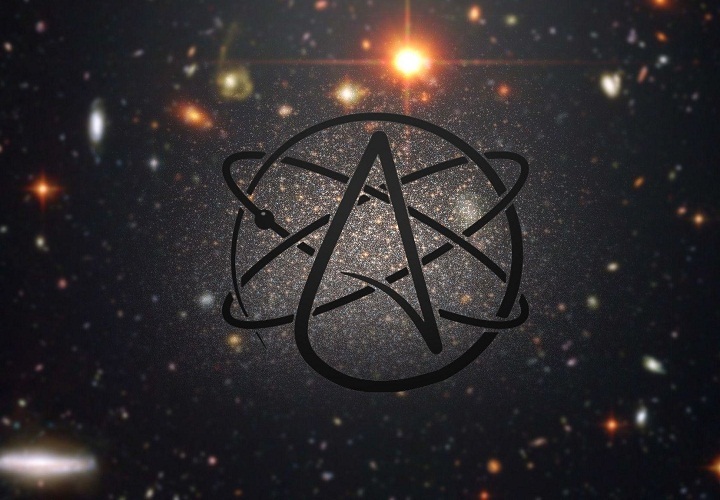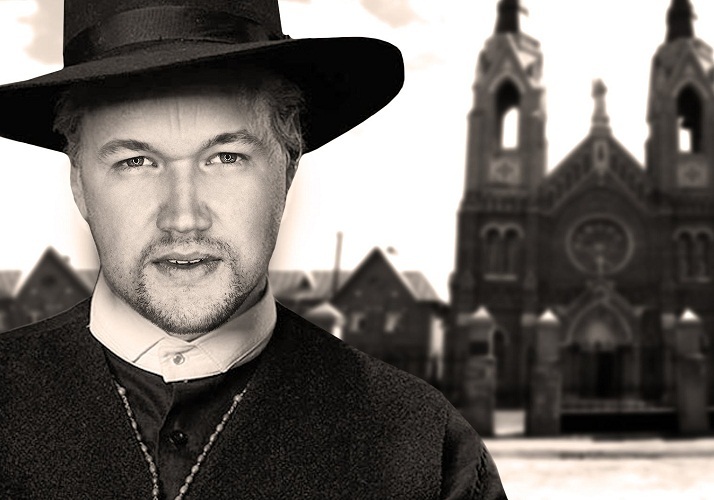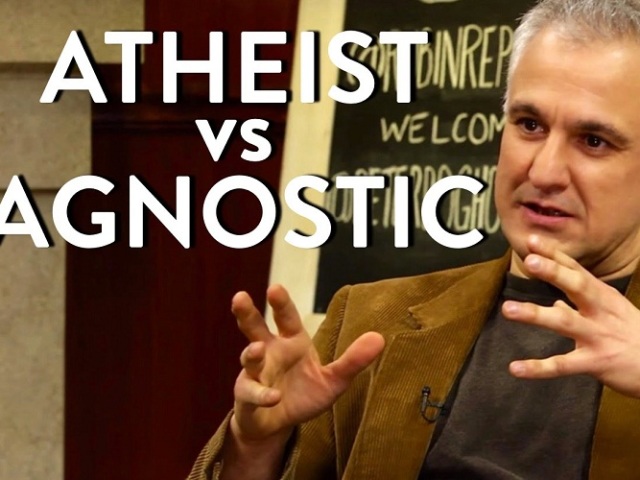In this article, we will consider who the agnostics and atheists are, and how they differ from each other.
Content
In the modern world, positions are quite common, which in different ways oppose the existence of some religions or simply do not adhere to them. They are similar to each other, but not identical. The words atheism and agnosticism, as well as atheist and agnostic, cause a number of different associations in most people. But ordinary citizens often have an incorrect understanding of the problem in which the main difference between the adherents of these two concepts lies.
How to distinguish an atheist from agnostic?
This is a matter of the existence of gods from the point of view of the life positions of agnosticism and atheism. Because of this, conflicts arise in society and the misunderstanding between the adherents of these positions. To destroy any prejudices and incorrect interpretations of these terms, you need to consider the differences between atheists and agnostics. But before, it is important to understand the meaning of each of the words.
Who is an atheist?
An atheist is a person who does not believe in any god. Moreover, he generally denies all paranormal phenomena and mystical figures. Yes, and all other things that cannot be explained by logic and thinking.
- At first glance, atheism is a very simple concept, but it is often perceived incorrectly or not quite accurately. You can interpret atheism in different ways, for example:
- this is the lack of faith in the gods or one God;
- distrust of the gods or, again, to God alone.
- But the most accurate definition, which expresses the essence of the concept, is the person who rejects the common statement "at least one God exists."
- This statement does not belong to atheists and is categorically not perceived by them. To be an atheist, a person does not need to take any active actions and even do not need to realize that he adheres to this position.
- Everything that is required of such a person is not to support the statements that are made by others, namely representatives of theism and church. Moreover, he treats both believers and faith with neglect.
Important: atheists are no less than supporters of the church. And in some countries they cover half the population. And even without hiding his position.

Which person can be called agnostic?
Agrostic is any person who does not claim that there is any God. In other words, he doubts even his beliefs. This idea can be incorrectly interpreted, so agnostics are often confused with atheists.
- Since he does not claim that he knows for sure about the existence or absence of God, such a person is an agnostic. But in this matter there is a certain separation. It is worthwhile to find out whether it is an agnostic atheist or agnostic theist.
- Agrostik-atheist does not believe in any God, and the agnostic-theist believes in the existence of at least one god. Nevertheless, both of them do not apply for knowledge to maintain this belief. They believe that it is impossible to obtain true knowledge and confirm their hypothesis.
- This seems contradictory and complex, but in fact it is quite easy and logical. Regardless of whether Agostik believes or not, it is convenient for him not to declare his beliefs. It’s enough for him to know - either this is true or a lie.
- Understanding the nature of atheism is quite easy - it is simply the lack of faith in any gods. That agnosticism is not, as many believe, “the third way” between atheism and theism.
- After all, agnosticism - This is not faith in God, but knowledge of Him. Initially, he was invented to describe the position of a person who could not declare his beliefs. That is, he knows about the existence or absence of any gods.
Important: nevertheless, many people have an erroneous impression that agnosticism and atheism are mutually exclusive. But, in fact, “I do not know” logically does not exclude “I do not believe”.

How to understand who is agnostic and who is an atheist?
There is a simple test that easily determines whether a person is an agnostic or not, or to which category he belongs.
- If a person says that he knows exactly about the existence of any gods or one God, then he is not agnostic, but theist. That is, a believer familiar to us. What God is a different conversation.
- And if he believes and even knows exactly that God does not exist, then this is a representative of not agnosticism, but atheism. That is, I am 100% sure of my ideas. It is even pointless to convince him in something. Unless to show real arguments.
- Everyone who cannot answer “yes” to one of these questions is a person who may believe or not believe in one or more gods. Or he believes, but cannot explain the concept of reasonably. Therefore, doubt arises inside him. This person belongs to the group of agnostics.
What is common between agnostic and atheist?
Yes, you can even establish a thin thread of similarities between these simultaneously opposite and similar views.
- It should be noted that these are sane people who guided by their mind. They have a clear idea of \u200b\u200bthe world and its components, which should be clearly confirmed. That is, everything should have a logical explanation and, preferably, a clear example.
- Continues their thinking and inability to prove The existence of God. Yes, there are a Bible and legends about past events. But no one saw his eyes, and did not touch with his hands. It is these that the proverb "is better to see 1 time than to hear 10 times."
- It is worth highlighting more concreteness. Namely, on the issue of faith. That is, it is not. Neither agnostic has an accurate formulation of faith, nor the atheist has mitigating circumstances in this matter.

What is the difference between agnostic and atheist: comparison
The appearance of agnostics and atheists was provoked by the historical conditions for the development of mankind. The main reason for their appearance is the presence of a large number of different religious beliefs in the world. After all, each representative claims that his position is the only true option for creating the world.
- Already in a primitive society, people appeared who doubted the authenticity of any religious belief. Be it paganism, Christianity or Judaism is not particularly important. They did not recognize the existence of God as the Creator of all living and inanimate.
- Among such people, representatives of agnosticism and atheism are most popular, but their life positions differ to a certain extent from each other.
- Nowadays, the difference between an atheist and agnostic should be quite clear and easy to remember.
- Atheism is a faith or, in this case, its absence. More precisely, it is, but it consists in the opposite nature that there is no God.
- Agrosticism is knowledge or, in particular, unconfirmed ignorance. Moreover, it does not want to declare or receive any facts.
- In other words, the atheist does not believe in any god. And Agnostik does not know whether God exist or not.
- The misconception is that agnosticism is a more “reasonable” position. While atheism is “dogmatic” and, ultimately, indistinguishable from theism, with the exception of details. This is an incorrect argument, since it distorts or incorrectly interprets the concepts of theism, atheism and agnosticism.
- Atheists and agnostics, no doubt, have common features. But there are much more differences. The first difference is The attitude of representatives of both groups to theism.
- Atheists do not recognize theism and consider all believers to their opponents. Moreover, they stand out in a certain aggressiveness in this matter. Psychologists also note that among atheists there are more egoists and overly stubborn people.
- Agnostics are loyal to theism, and nothing prevents him from being the about simultaneously and believe in God. By the way, it is among them that there are many altruists. That is, they show excessive kindness to others, even strangers.

- It is also worth noting that the same person can act as an atheist and agnostic. The fact is that a person does not encounter the need to be only an atheist or agnostic.
- Regardless of how they approach the question of the existence of God, agnostics and atheists are fundamentally different. Many people who have accepted the agnostic label at the same time reject the short -up of an atheist, even if it is technically applicable to them.
- Theists, in turn, recognize the existence of agnosticism and try to use the hypotheses developed by them to combat atheism, sometimes distorting them.
- It is worth noting that there is an evil double standard. After all, theists argue that agnosticism is better than atheism. Since it is less dogmatic. But the agnostics that take into account this argument rarely talk about this clearly. More often they try to approve religious theists, attacking atheists.
- Another difference - position in society. Atheists are still condemned and despised by society. The attitude towards agnostics is completely different.
- Yes, without exaggeration. A distinctive feature of the concept of atheism is constant social pressure and prejudices regarding atheism and atheists. People who are not afraid to say that they really do not believe in any god are still despised by society.
- At the same time, the word "agnostic" is perceived as a more respectable position, and the position of agnosticism is considered more acceptable for the rest.
- What is there, agnostics are even prestigious, because they are considered representatives of science. Many agnostics were philosophers, and scientific figures are considered with their opinion now.
Important: but there is the main difference between the two concepts. Atheism is the lack of faith in any gods. Agrosticism is a recognition that the existence of the gods is an unconfirmed hypothesis. Since it cannot be checked.

- It is also worth noting that they have different views on the human soul. And by the way, she, by the way, cannot be seen or touched. But, the atheist remains unshakable in this matter, but Agnostik changed his position. He recognizes the presence of a soul in a person. And it argues that he feels it inside.
- And in conclusion, I would like to recall the old folk traditions Or even family rites. Yes, even banal gifts for birthday. Agnostik does not see meaning in them and even a little viciously reacts to all useless expenses. The agnostic and in this matter has changed a little firmness - he approves with both hands for all traditional celebrations, if he likes them.
It is worth summing up to never confuse these words among themselves. Atheist is a concept associated with faith, or rather with its absence. Agrostik is a term associated with knowledge, or rather, with the impossibility of reliable knowledge.







